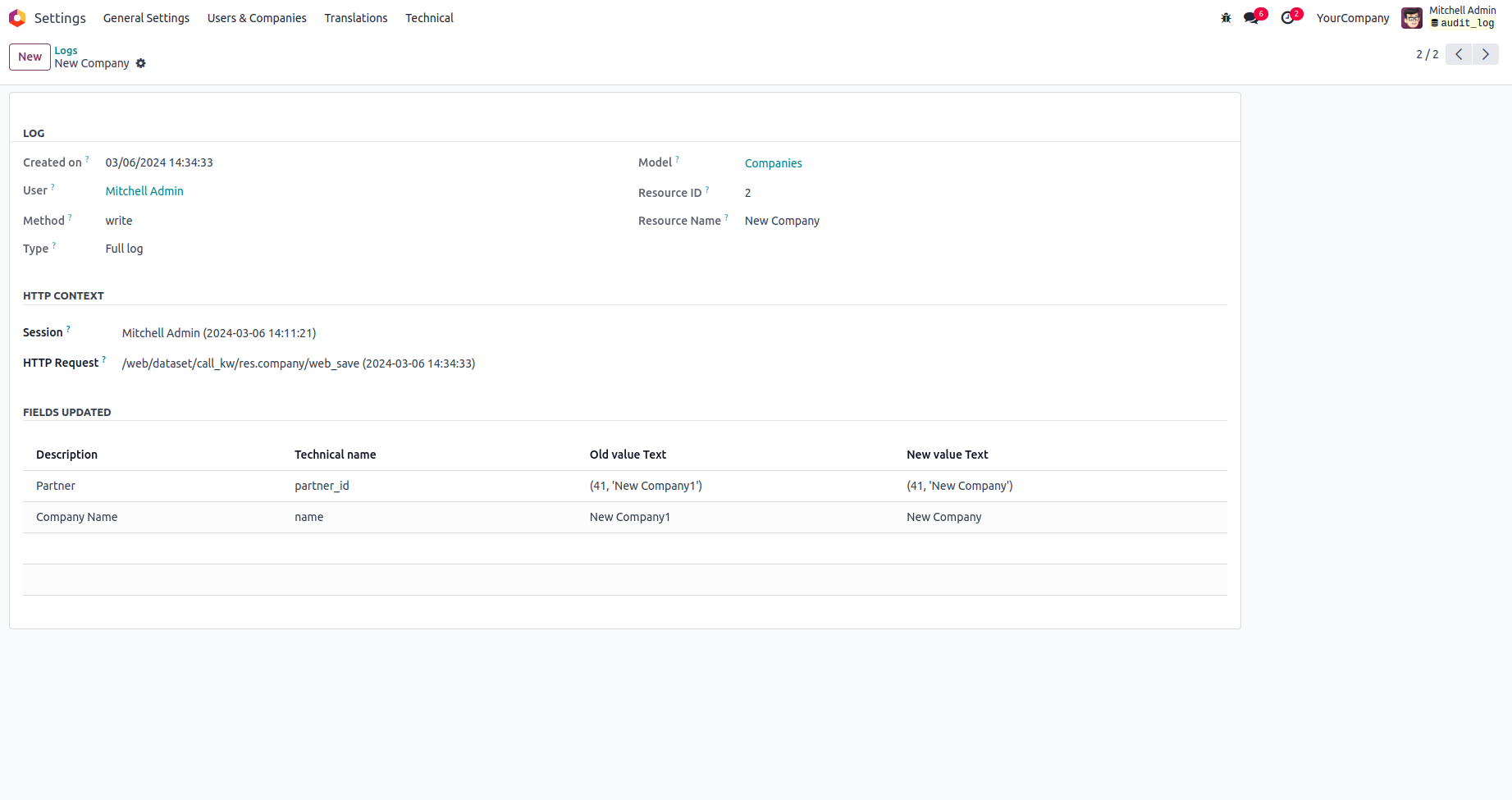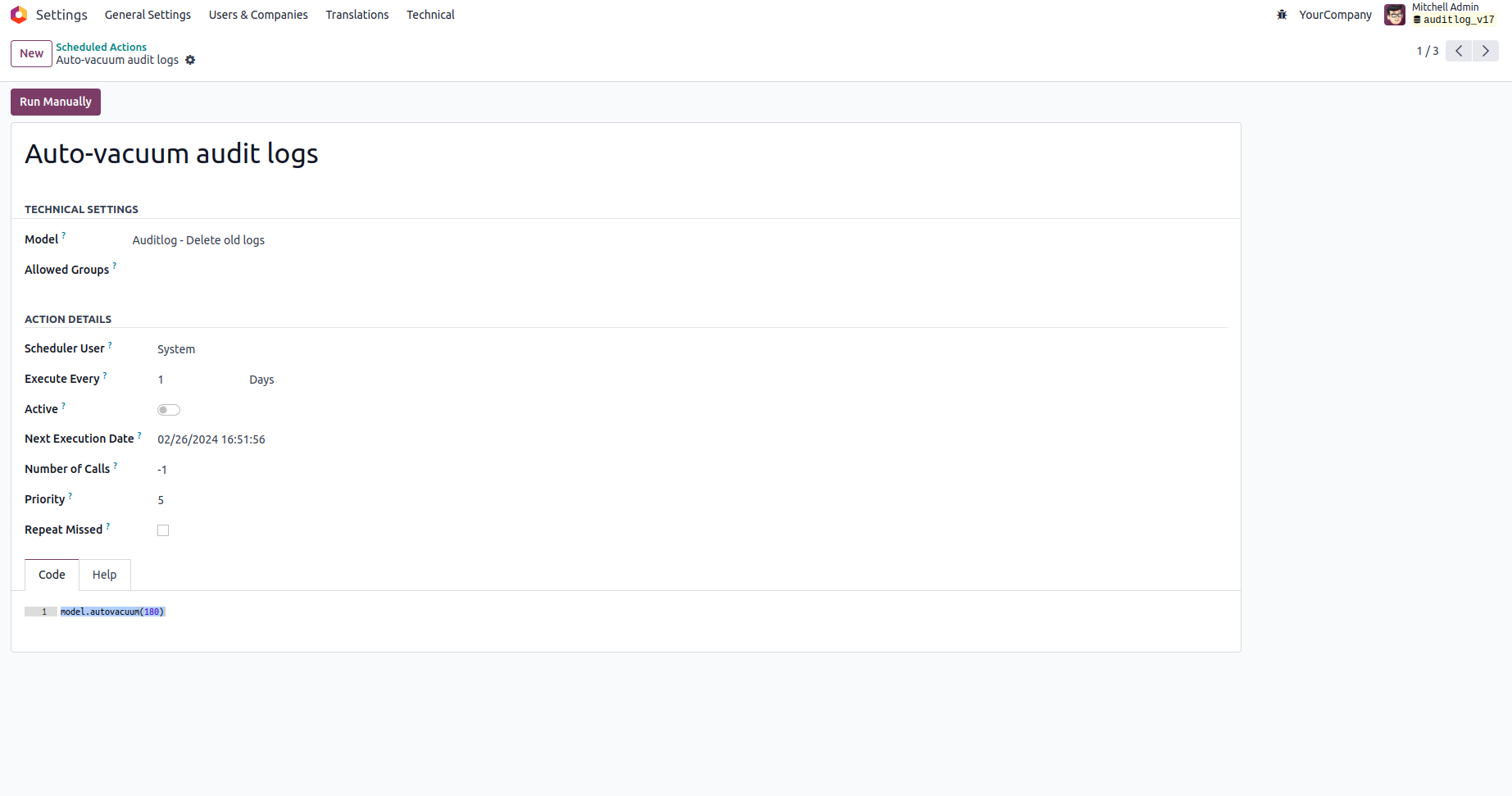
Audit Log
Audit Log module allows the administrator to log user operations performed on data models such as create, read, write and delete.
Audit log has records providing information about who has accessed the system and what operations he or she has performed during a given period of time. Audit logs are useful both for maintaining security and for recovering lost transactions.
You may access the Audit area from Settings, under the Technical section. There, you will see Rules, Logs, Log Lines, User sessions, and HTTP Requests.Through the selection of models, we may establish specific rules that enable the administrator to record user actions like Log Reads, Log Writes, Log Creates, and Log Deletes.
Audit Log module allows the administrator to log user operations performed on data models such as create, read, write and delete.
Key Features
- Make a Rule: For a certain data model, a rule specifies which operations to log.
- Displays produced logs according to the rules.
- User Sessions
- HTTP Requests
Audit Log
Establish a Rule,A rule identifies the operations to log for a certain data model and how they should be handled. Shows the logs that were generated in accordance with the guidelines. HTTP Requests and User Sessions can be seen.
Go to Settings / Technical / Audit / Rules
A rule defines which operations to log for a given data model.

Check logs in the Settings / Technical / Audit / Logs menu.
You can group them by user sessions, date, data model or HTTP requests.

Get the details

Configuration / Technical / Automation / Scheduled Actions
A scheduled action exists to delete logs older than 6 months (180 days) automatically but is not enabled by default. To activate it and/or change the delay, go to the menu above and edit the Auto-vacuum audit logs entry:

Audit Log
GNU Affero General Public License v3.0 This software and associated files (the "Software") may only be used (executed, modified, executed after modifications) if you comply with the terms of the GNU Affero General Public License, version 3.0, available at https://www.gnu.org/licenses/agpl-3.0.html. You may develop software that uses the Software as a library (typically by depending on it, importing it and using its resources), but without copying any source code or material from the Software. You may distribute those software under the terms of the GNU Affero General Public License, version 3.0. It is forbidden to publish, distribute, sublicense, or sell copies of the Software or modified copies of the Software without including the complete text of the GNU Affero General Public License, version 3.0, along with any applicable additional permissions. THE SOFTWARE IS PROVIDED "AS IS", WITHOUT WARRANTY OF ANY KIND, EXPRESS OR IMPLIED, INCLUDING BUT NOT LIMITED TO THE WARRANTIES OF MERCHANTABILITY, FITNESS FOR A PARTICULAR PURPOSE AND NONINFRINGEMENT. IN NO EVENT SHALL THE AUTHORS OR COPYRIGHT HOLDERS BE LIABLE FOR ANY CLAIM, DAMAGES OR OTHER LIABILITY, WHETHER IN AN ACTION OF CONTRACT, TORT OR OTHERWISE, ARISING FROM, OUT OF OR IN CONNECTION WITH THE SOFTWARE OR THE USE OR OTHER DEALINGS IN THE SOFTWARE.
- base